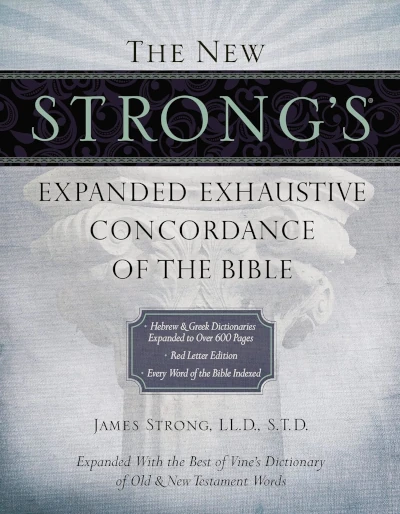What happens when extraordinary wisdom is paired with human frailty? 1 Kings provides a profound exploration of this question. It chronicles the pinnacle of Israel’s united monarchy under Solomon, a king renowned for his unmatched wisdom and the construction of the magnificent temple. Yet, it also unveils his tragic descent into idolatry and compromise, setting the stage for the kingdom’s division.
Through the reigns of subsequent kings, the book highlights the tension between human leadership and divine authority, as well as the devastating consequences of abandoning God’s commands. Amid Israel’s struggles, we see God’s unwavering faithfulness and His relentless pursuit of His people through the voices of prophets like Elijah.
The book of First Kings challenges us to consider the cost of disobedience and the blessings of walking in God’s ways. How can the lessons from these ancient stories illuminate our own lives today? Dive into this remarkable account and uncover timeless truths for faith and leadership.
1 Kings: Writer
The book of 1 Kings does not explicitly name its writer, leaving the authorship shrouded in mystery. Traditionally, it has been attributed to the prophet Jeremiah, though there is no definitive evidence to confirm this claim. The book is likely a compilation of historical records maintained by prophets or scribes, individuals divinely inspired to preserve Israel’s spiritual and political history.
These writers carefully chronicled significant events, including the reign of Solomon, the construction of the temple, the division of the kingdom, and the ministries of prophets like Elijah. By compiling these accounts, they provided not just a historical record but a theological reflection on Israel’s covenant relationship with God.
The book of First Kings exhibits a prophetic perspective, emphasizing the spiritual consequences of obedience and disobedience to God’s law. This focus suggests that its writer sought to instruct and warn future generations about the importance of remaining faithful to God. While the exact identity of the writer remains uncertain, the book’s divine inspiration is evident in its enduring relevance and impact.
1 Kings: Date Written
The book of 1 Kings is believed to have been written between 560–540 BC, during the period of the Babylonian exile. This was a time of significant upheaval for the Israelites, as they were living far from their homeland, grappling with the loss of their temple, and reflecting on the events that led to their captivity.
Scholars suggest that the book of First Kings was compiled using earlier records and oral traditions, carefully preserved and written down to provide a theological interpretation of Israel’s history. The purpose was not merely to recount historical events but to explain how disobedience to God’s covenant and idolatry led to the downfall of the nation.
By recounting the reigns of Solomon and the subsequent kings, along with the division of the kingdom, the book offered both a warning and a call to repentance. It reminded the exiled community of God’s sovereignty, faithfulness, and the importance of worshiping Him alone.
The book of 1 Kings served as a tool to help the Israelites understand their identity, God’s expectations, and the consequences of spiritual compromise. It remains a timeless resource for reflecting on the interplay between divine authority and human responsibility.
1 Kings: To Whom Written
The book of 1 Kings was primarily written to the Israelites, especially those living in exile during the Babylonian captivity. This audience faced a profound crisis of identity and faith, having lost their homeland, temple, and sense of national unity. The book sought to remind them of their unique covenant relationship with God and the spiritual principles that governed their history.
By recounting the successes and failures of Israel’s kings, beginning with Solomon’s reign and the construction of the temple, the book of First Kings underscored the blessings of obedience and the consequences of disobedience. It highlighted how the nation’s struggles were directly tied to their leaders’ decisions to either honor or reject God’s commands.
For the exiled community, this narrative served as a reflection on the past, calling them to repentance and renewed faithfulness. It reinforced the enduring sovereignty of God, even in the midst of their suffering, and reminded them that God’s promises were not void despite their circumstances.
1 Kings remains a powerful message for any generation, urging believers to trust in God’s faithfulness, learn from history, and remain steadfast in their commitment to His Word.
Purpose of the Book of First Kings
The book of First Kings was written to document the spiritual and political history of Israel and Judah, offering a vivid portrayal of the consequences of obedience and rebellion toward God. Through the accounts of Solomon’s reign, the division of the kingdom, and the ministries of prophets like Elijah, the book underscores how closely a nation’s fate is tied to its faithfulness to God’s covenant.
One central purpose of 1 Kings is to serve as a spiritual mirror for the Israelites. It reveals the blessings that come with obedience, as seen in Solomon’s wisdom and the construction of the temple, and the devastating results of disobedience, evident in Solomon’s idolatry and the eventual division of the kingdom.
The book also highlights the sovereignty of God, reminding readers that His purposes prevail even amid human failure. By reflecting on Israel’s history, the book of First Kings calls God’s people to return to Him, repent of their sins, and trust in His faithfulness.

Strong’s Exhaustive Concordance
The New Strong’s Expanded Exhaustive Concordance of the Bible is a valuable tool for pastors, teachers, and students of the Bible. This expanded edition is computer generated for highest accuracy, and the Hebrew and Greek dictionaries have been augmented with definitions from the classic reference work Vine’s Complete Expository Dictionary of Old and New Testament Words. Get Yours on Amazon
Historical Context of the Book of First Kings
The book of 1 Kings covers a critical period in Israel’s history, beginning with Solomon’s reign around 970 BC and ending during the reign of Ahaziah around 850 BC. This era marks the transition from a united monarchy under Solomon to a divided kingdom, with Israel in the north and Judah in the south.
The book opens with Solomon’s ascent to the throne, his prayer for wisdom, and the construction of the temple, symbolizing Israel’s spiritual and political height. However, Solomon’s later turn to idolatry sets the stage for national decline. Upon his death, his son Rehoboam’s harsh policies triggered the division of the kingdom, with Jeroboam leading the northern tribes to form Israel.
The divided kingdom becomes a backdrop for political instability and spiritual decline, as many kings fail to follow God’s commands. Meanwhile, prophets like Elijah emerge, calling the people back to covenant faithfulness.
The book of First Kings reflects a tumultuous period where human leadership often faltered, yet God’s sovereignty remained evident. It serves as a historical and theological reminder of the consequences of disobedience and the enduring hope found in God’s faithfulness.
Key Themes in 1 Kings
1 Kings presents foundational spiritual lessons through the history of Israel’s monarchy, highlighting themes that remain relevant for believers today. Despite human failings, God’s plan unfolds, demonstrating His control over history. From Solomon’s rise to power to the divided kingdom’s struggles, the book shows that no king can operate independently of God’s will. Even in times of rebellion, God’s sovereignty is evident, guiding events to fulfill His purposes.
The reign of Solomon illustrates the blessings that flow from obedience to God, including wisdom, prosperity, and peace. However, Solomon’s descent into idolatry warns of the dire consequences of disobedience. This theme is repeated throughout First Kings, as later kings’ choices to follow or reject God’s commands bring either national blessing or calamity.
True worship is a central concern in 1 Kings. Solomon’s temple stands as a symbol of Israel’s devotion to God. Yet, the recurring sin of idolatry, beginning with Solomon and continuing with kings like Jeroboam, highlights how turning to false gods leads to spiritual and national ruin.
Prophets emerge as God’s messengers, confronting sin and calling the nation to repentance. Elijah’s ministry stands out as a vivid example, from his confrontation with the prophets of Baal to his encouragement of the faithful remnant. This book reminds readers that God’s word, delivered through His prophets, is a source of guidance, correction, and hope.
The division of the kingdom into Israel and Judah demonstrates the devastating consequences of rejecting God’s ways. Political strife mirrors spiritual decline, as disobedience leads to fractured leadership, weakened unity, and eventual judgment.
The Book of First Kings weaves these themes together to teach profound lessons about faithfulness, leadership, and God’s enduring plan for His people. It challenges readers to honor God with obedience, worship, and trust in His sovereignty.
Major Events/Stories in the Book of First Kings
First Kings chronicles pivotal moments in Israel’s history, highlighting key events that shaped the nation’s spiritual and political landscape. These stories provide profound lessons about leadership, obedience, and God’s faithfulness.
1 Kings opens with Solomon’s ascent to the throne after the reign of his father, David. Solomon’s reign is marked by unmatched wisdom, which he requests from God to govern the people justly (1 Kings 3). His wisdom became legendary, attracting leaders and nations to admire Israel’s prosperity.
A defining moment of Solomon’s reign is the construction of the temple in Jerusalem (1 Kings 6–8). This magnificent structure symbolizes God’s presence among His people and becomes the spiritual center of Israel’s worship. Solomon’s prayer at the temple’s dedication emphasizes the importance of covenant faithfulness.
However, Solomon’s later years are marred by compromise. He marries foreign wives who lead him into idolatry, violating God’s commands. His spiritual downfall sets the stage for the kingdom’s eventual division (1 Kings 11).
After Solomon’s death, his son Rehoboam inherits the throne. His refusal to lighten the heavy burden of labor and taxes placed on the people results in rebellion (1 Kings 12). The northern tribes break away under the leadership of Jeroboam, forming the kingdom of Israel, while Rehoboam retains control of Judah in the south.
Jeroboam quickly leads Israel into idolatry by establishing golden calves in Bethel and Dan, seeking to consolidate his rule. This decision creates a legacy of spiritual decline in the northern kingdom. The division of the kingdom marks a turning point in Israel’s history, leading to ongoing conflict and disobedience.
One of the most dramatic narratives in the book of First Kings is the ministry of the prophet Elijah. During the reign of Ahab, a king notorious for his wickedness and idolatry, Elijah boldly confronts the nation’s spiritual corruption (1 Kings 17–19).
Elijah’s confrontation with the prophets of Baal on Mount Carmel is a powerful demonstration of God’s sovereignty. As fire descends from heaven to consume Elijah’s sacrifice, the people witness the futility of idolatry and the power of the one true God. Despite his victories, Elijah faces moments of despair, reminding readers of God’s grace and provision in times of weakness.
The book of First Kings concludes with the rise of Jehoshaphat, a king of Judah known for his commitment to spiritual reform and reliance on God (1 Kings 22). He seeks to honor God by removing idols and promoting worship, offering a glimmer of hope amid the nation’s spiritual struggles.
These major events in the book of First Kings illustrate the interplay between human leadership and divine authority. They challenge readers to reflect on their own faithfulness and trust in God’s unchanging sovereignty.
Theological Contributions from the Book of First Kings
Throughout the book of First Kings, God’s covenant faithfulness remains a central theme. Despite Israel’s repeated failures and the unfaithfulness of many of its leaders, God does not abandon His promises. His enduring commitment to the covenant with David is evident, particularly in His preservation of Judah for the sake of David’s lineage. This faithfulness reassures readers of God’s unchanging nature and steadfast love.
Judgment and Grace
The book highlights the balance between God’s judgment and His grace. Disobedience consistently leads to consequences, as seen in the division of the kingdom and the downfall of various kings. Yet, repentance always opens the door to God’s mercy. The ministry of Elijah demonstrates this principle, as God provides opportunities for the people to turn back to Him, even after severe judgment.
The Temple as God’s Dwelling
The temple built by Solomon symbolizes God’s presence among His people and serves as a central place for worship and covenant renewal. Solomon’s dedication prayer emphasizes the temple as a place where God hears prayers and forgives sins, showcasing His accessibility and desire for relationship with His people.
Role of Prophets
Prophets play a vital role in the book of First Kings, acting as God’s voice to call Israel back to faithfulness. Figures like Elijah remind readers of God’s active involvement in guiding, correcting, and encouraging His people, even during times of national rebellion and spiritual decline.
These theological contributions from the book of First Kings offer timeless lessons about God’s justice, mercy, and enduring presence.
Special Consideration in 1 Kings
The book of First Kings underscores the critical need for godly leadership and the far-reaching impact of a leader’s choices on a nation. The reigns of Solomon, Jeroboam, and others serve as vivid illustrations of how faithfulness to God brings blessings, while disobedience leads to devastating consequences.
Solomon’s early devotion to God resulted in unparalleled wisdom, prosperity, and the construction of the temple. However, his later compromise with idolatry not only marked his downfall but also set the stage for the kingdom’s division. Similarly, Jeroboam’s decision to introduce idol worship as a means of securing his rule caused widespread spiritual decline in the northern kingdom.
The book of First Kings reminds readers that true success lies in seeking God wholeheartedly and obeying His commands. It challenges leaders and individuals alike to examine their priorities and commit to honoring God in every decision. This message is timeless, emphasizing the enduring truth that faithfulness to God is the foundation for both personal and communal flourishing.
Closing Thoughts on 1 Kings
The book of 1 Kings stands as a profound testament to the significance of faithfulness, obedience, and godly leadership. Through its rich narrative, it reveals how spiritual compromise and disobedience lead to personal and national downfall, while unwavering devotion to God brings blessing and restoration.
The reign of Solomon, with its initial glory and eventual decline, highlights the importance of prioritizing God above all else. The division of the kingdom underscores the consequences of poor leadership and idolatry, while the ministry of Elijah demonstrates God’s relentless pursuit of His people through prophetic guidance.
More than a historical record, the book of First Kings challenges us to reflect on our own lives. Are we building on the foundation of God’s Word, or are we swayed by distractions and compromises? The timeless truths found in its pages remind us that true success and peace come only from walking in covenant relationship with God.
Discover More in Bible Study Toolbox
Looking for more? Explore additional Old Testament Bible Outlines to see how God’s Word fits together chapter by chapter. Each outline is part of the resources available at Bible Study Toolbox, where we provide studies, guides, and tools to help believers grow in the Word with clarity and confidence. Contact us with any questions or concerns.




